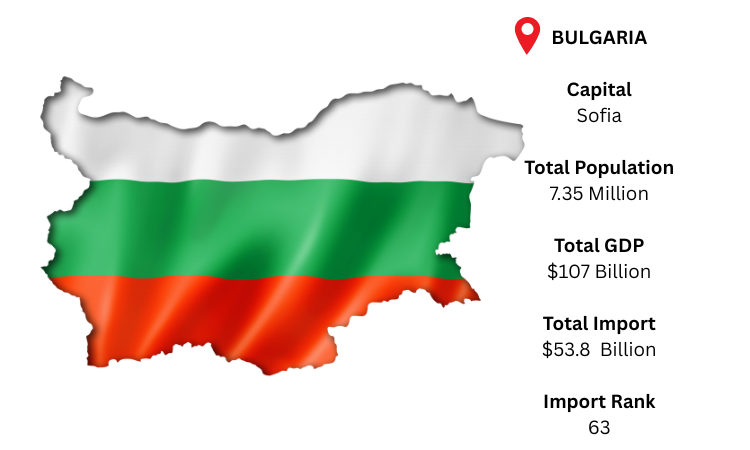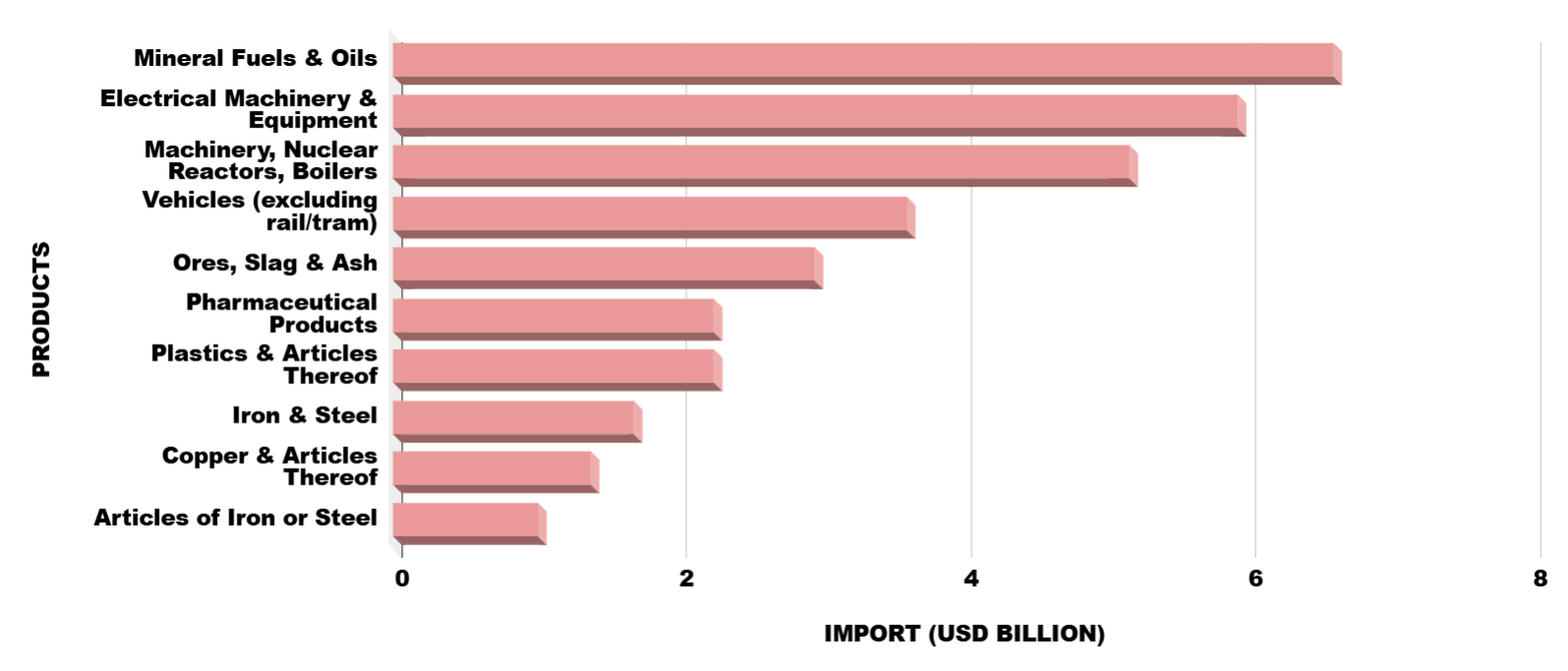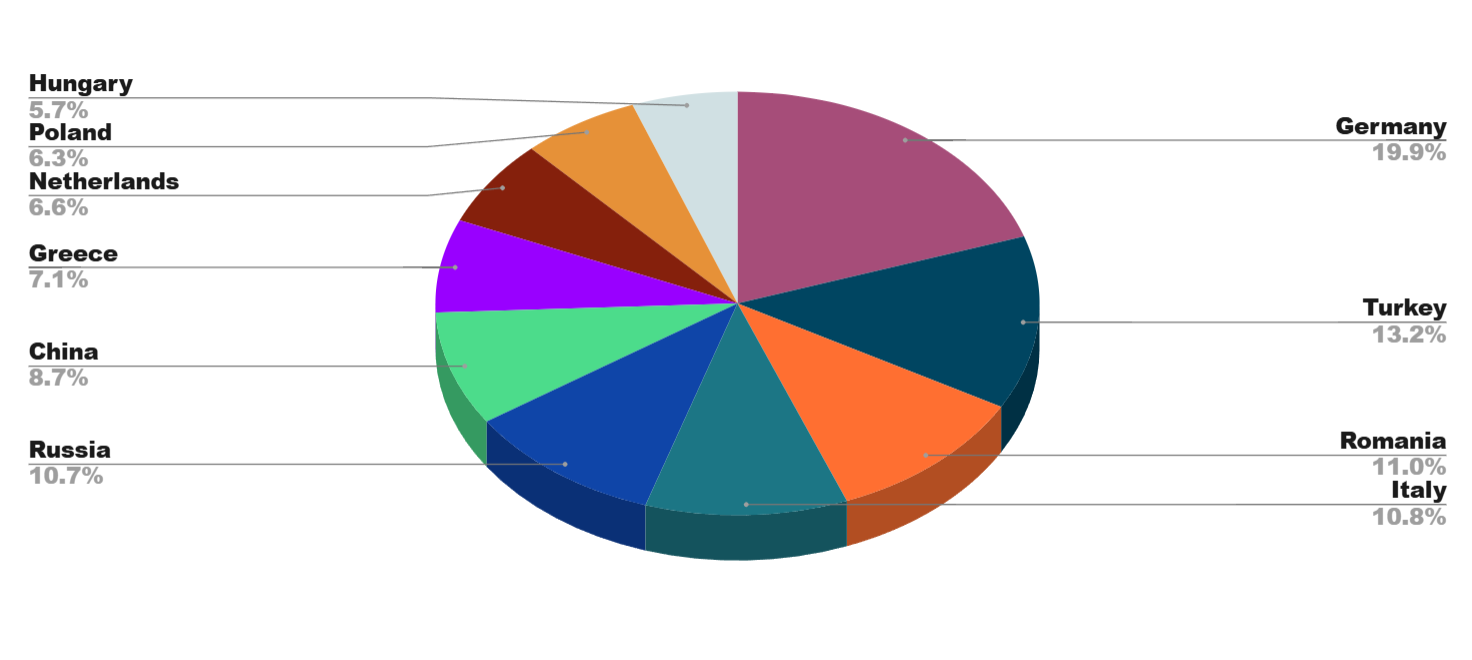The Southeast European nation of Bulgaria is well-known for its burgeoning energy and industrial sectors. Sofia, the capital, serves as the hub for its administrative and economic operations. With a GDP of USD 107 billion, the population is estimated to be 7.35 million in 2024. As per Bulgaria import data, Bulgaria will import around USD 53.8 billion, making it the 63rd highest importer in the world. Germany, Turkey, and Romania are its major import partners, and the most important commodities it imports are mineral fuels and oils, which are essential for its energy-intensive industry and transportation system.
As per Bulgaria customs data, Bulgaria's import structure helps the country's expanding economy, particularly in the areas of electronics, transportation, industrial machinery, and utilities.



